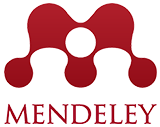Student Diversity and Differentiated Learning: Exploring Differentiated Learning Practices in Elementary Schools
Abstract
Keywords
Full Text:
PDFReferences
Aguanda, Setiawan, A., Anwar, M. S., Wardana, M. R. F., & Yambasu, R. A. (2023). The Effect of Differentiated Learning on Improving Student Learning Outcomes. Delta-Phi: Jurnal Pendidikan Matematika, 1(1), 46–50. https://doi.org/10.61650/ dpjpm.v1i1.199
Aljowaysir, N., Ozdemir, T. O., & Kim, T. (2019). Differentiated Learning Patterns with Mixed Reality. 2019 IEEE Games, Entertainment, Media Conference (GEM), 1–4. https://doi.org/10.1109/GEM.2019.8811558
Amalia, S., Safrida S, & Ulva, S. M. (2024). Differentiated Learning Integrated with Social Emotional Awareness and Digital Learning Media in Improving the Students Motivation and Learning Outcomes. Jurnal Penelitian Pendidikan IPA, 10(1), 239–245. https://doi.org/10.29303/jppipa.v10i1.5354
Astuti, I., & Afendi, A. R. (2022). Implementation of Differentiated Learning Through Play Activities in Early Childhood. EduLine: Journal of Education and Learning Innovation, 2(3), 358–365. https://doi.org/10.35877/454RI.eduline1264
Bogdan, R. C., & Biklen, S. K. (2007). Qualitative Research for Education: An Introduction to Theory and Methods (A. E. Burvikovs (ed.); Fifth Edit). Pearson Education, Inc.
Cahyanto, B., Lutfia, M. S., Muawana, N., Ilmi, I. N., & Malang, U. I. (2021). Teacher Strategies in Online Learning During the Covid-19 Pandemic : A Practice in Elementary School. 262–269.
Cahyanto, B., Masyinta Maghfirah, & Hamidah, N. (2021). Implementasi Pembelajaran Daring di Masa Pandemi Covid-19. At-Thullab: Jurnal Pendidikan Guru Madrasah Ibtidaiyah, 5(1).
Creswell, W. J., & Creswell, J. D. (2018). Research Design: Qualitative, Quantitative and Mixed Methods Approaches. In Journal of Chemical Information and Modeling (Fifth Edit, Vol. 53, Issue 9). SAGE Publications, Inc. file:///C:/Users/Harrison/Downloads/John W. Creswell & J. David Creswell - Research Design_ Qualitative, Quantitative, and Mixed Methods Approaches (2018).pdf%0Afile:///C:/Users/Harrison/AppData/Local/Mendeley Ltd./Mendeley Desktop/Downloaded/Creswell, Cr
Dalila, A. A., Rahmah, S., Liliawati, W., & Kaniawati, I. (2022). Effect of Differentiated Learning in Problem Based Learning on Cognitive Learning Outcomes of High School Students. Jurnal Penelitian Pendidikan IPA, 8(4), 2116–2122. https://doi.org/10.29303/jppipa.v8i4.1839
Dapa, A. N. (2020). Differentiated Learning Model For Student with Reading Difficulties. JTP - Jurnal Teknologi Pendidikan, 22(2), 82–87. https://doi.org/ 10.21009/jtp.v22i2.15814
Davies, D., & Dodd, J. (2002). Qualitative Research and the Question of Rigor. Qualitative Health Research, 12(2), 279–289. https://doi.org/10.1177/104973230201200211
de Jager, T. (2013). Guidelines to assist the implementation of differentiated learning activities in South African secondary schools. International Journal of Inclusive Education, 17(1), 80–94. https://doi.org/10.1080/13603116.2011.580465
Eikeland, I., & Ohna, S. E. (2022). Differentiation in education: a configurative review. Nordic Journal of Studies in Educational Policy, 8(3), 157–170. https://doi.org/10.1080/20020317.2022.2039351
Faigawati, F., Safitri, M. L. O., Dwi Indriani, F., Sabrina, F., Kinanti, K., Mursid, H., & Fathurohman, A. (2023). Implementation of Differentiated Learning in Elementary Schools. Jurnal Inspirasi Pendidikan, 13(1), 47–58. https://doi.org/10.21067/jip.v13i1.8362
Fatmawati, Hardiyanti, & Muktamar, A. (2023). Implementation of Differentiated Learning in Indonesian Language Courses: Realizing Freedom of Learning. ETDC: Indonesian Journal of Research and Educational Review, 2(4), 44–54. https://doi.org/10.51574/ijrer.v2i4.935
Gagne, R. M., Wager, W. W., Golas, K. C., Keller, J. M., & Russell, J. D. (2005). Principles of instructional design. Wiley Online Library.
Gheyssens, E., Coubergs, C., Griful-Freixenet, J., Engels, N., & Struyven, K. (2022). Differentiated instruction: the diversity of teachers’ philosophy and praxis to adapt teaching to students’ interests, readiness and learning profiles. International Journal of Inclusive Education, 26(14), 1383–1400. https://doi.org/10.1080/13603116.2020.1812739
Gnyawali, D. R., Stewart, A. C., & Grant, J. H. (2005). DIFFERENTIATED LEARNING PROCESSES FOR ENHANCING ORGANIZATIONAL KNOWLEDGE ACROSS ENVIRONMENTAL CONTEXTS. International Journal of Organizational Analysis, 13(3), 216–243. https://doi.org/10.1108/eb029005
Hartono, Y., Haryanto, S., & Asrowi, A. (2018). Character Education in the Perspective of Humanistic Theory: A Case Study in Indonesia. Educare, 10(2), 34. www.mindamas-journals.com/index.php/educare
JilardiDamavandi, A., Mahyuddin, R., Elias, H., Daud, S. M., & Shabani, J. (2011). Academic Achievement of Students with Different Learning Styles. International Journal of Psychological Studies, 3(2). https://doi.org/10.5539/ijps.v3n2p186
Miles, M. B., Huberman, A. M., & Saldana, J. (2014). Qualitative Data Analysis: A Methods Sourcebook (Three Edit). SAGE Publications, Inc.
Mills, M., Monk, S., Keddie, A., Renshaw, P., Christie, P., Geelan, D., & Gowlett, C. (2014). Differentiated learning: from policy to classroom. Oxford Review of Education, 40(3), 331–348. https://doi.org/10.1080/03054985.2014.911725
Morgan, H. (2014). Maximizing Student Success with Differentiated Learning. The Clearing House: A Journal of Educational Strategies, Issues and Ideas, 87(1), 34–38. https://doi.org/10.1080/00098655.2013.832130
Hartono, Y., Haryanto, S., & Asrowi, A. (2018). Character Education in the Perspective of Humanistic Theory: A Case Study in Indonesia. Educare, 10(2), 34. www.mindamas-journals.com/index.php/educare
Omeri, N. (2015). Pentingnya Pendidikan Karakter dalam Dunia Pendidikan. Manajer Pendidikan, 9(3), 464–468. https://doi.org/10.25157/j-kip.v2i3.6156
Saldana, J. (2011). Fundamentals of Qualitative Research: Understanding Qualitative Research. In Oxford University Press, Inc.
Sitorus, P., Simanullang, E. N., Manalu, A., Laia, I. S. A., Tumanggor, R. M., & Nainggolan, J. (2022). Effect of Differentiation Learning Strategies on Student Learning Results. Jurnal Penelitian Pendidikan IPA, 8(6), 2654–2661. https://doi.org/10.29303/jppipa.v8i6.2114
Smets, W., De Neve, D., & Struyven, K. (2022). Responding to students’ learning needs: how secondary education teachers learn to implement differentiated instruction. Educational Action Research, 30(2), 243–260. https://doi.org/10.1080/09650792.2020.1848604
Smets, W., & Struyven, K. (2020). A teachers’ professional development programme to implement differentiated instruction in secondary education: How far do teachers reach? Cogent Education, 7(1). https://doi.org/10.1080/2331186X.2020.1742273
Sugiri, W. A., & Priatmoko, S. (2020). Persprektif Asesmen Autentik Sebagai Alat Evaluasi Dalam Merdeka Belajar. At-Thullab : Jurnal Pendidikan Guru Madrasah Ibtidaiyah, 4(1), 53. https://doi.org/10.30736/atl.v4i1.119
Sulistianingrum, E., Fauziati, E., Rohmah, W., & Muhibbin, A. (2023). Differentiated Learning : The Implementation of Student Sensory Learning Styles in Creating Differentiated Content. Jurnal Paedagogy, 10(2), 308. https://doi.org/10.33394/jp.v10i2.7030
Taylor, S. J., Bogdan, R., & DeVault, M. L. (2016). Introduction to Qualitative Research Methods: A Guidebook and Resource. In News.Ge (Fourth Edi). John Wiley & Sons, Inc.
van Geel, M., Keuning, T., Frèrejean, J., Dolmans, D., van Merriënboer, J., & Visscher, A. J. (2019). Capturing the complexity of differentiated instruction. School Effectiveness and School Improvement, 30(1), 51–67. https://doi.org/10.1080/09243453.2018.1539013
Yin, R. K. (2016). Qualitative Research from Start to Finish. In The Guilford Press (Second Edi).
DOI: https://doi.org/10.21107/widyagogik.v10i1.26372
Refbacks
- There are currently no refbacks.
Copyright (c) 2022 Bagus Cahyanto

This work is licensed under a Creative Commons Attribution-ShareAlike 4.0 International License.












